Your car may overheat due to issues like radiator malfunctions, coolant leaks, or water pump failures.
Introduction
Car overheating is a prevalent issue faced by many drivers at some point in their driving journey. This problem isn’t just confined to older cars; even newer models can encounter overheating if not maintained properly or due to certain unforeseen circumstances. But what exactly is overheating? And why should every car owner be genuinely concerned about it? This section aims to delve into the intricacies of car overheating, providing you with a comprehensive understanding of the topic.
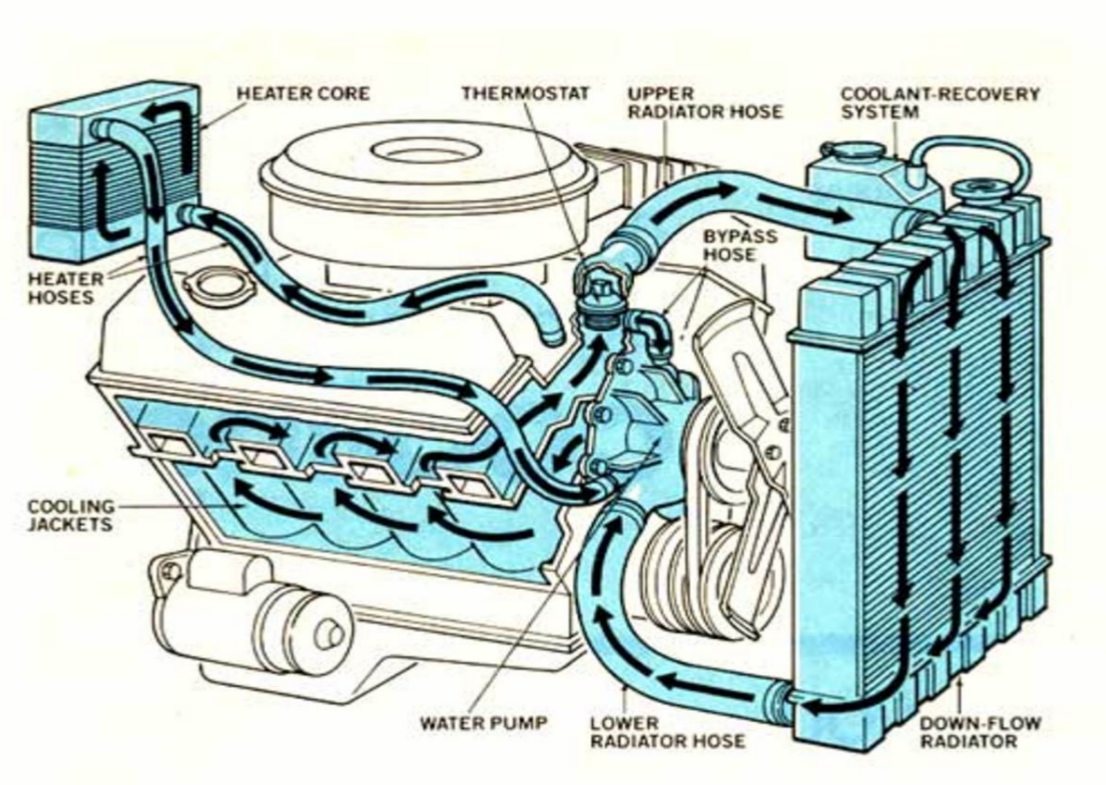
What is overheating?
Overheating refers to the situation when a car’s engine temperature exceeds its normal operating range. Every car has a cooling system designed to maintain the engine’s temperature within a specific range, ensuring optimal performance and longevity. However, when something goes wrong within this system or due to external factors, the engine can get excessively hot, leading to overheating. The typical temperature range for most engines lies between 195 to 220 degrees Fahrenheit. Any reading above this range might indicate potential overheating.
Why should you be concerned?
There are several reasons why you should take car overheating seriously:
- Engine Damage: Prolonged overheating can result in severe engine damage. Components like the cylinder head, engine block, or head gasket can warp or crack due to excessive heat. Repairing or replacing these parts can be costly, with prices ranging from $500 to $3,000 or even more, depending on the extent of the damage and the make and model of the car.
- Safety Concerns: An overheating car can be a potential safety hazard. There’s a risk of the engine catching fire or steam emanating from the radiator, which can impair the driver’s visibility.
- Decreased Efficiency: Overheating can result in decreased engine efficiency. The engine might consume more fuel, leading to reduced miles per gallon (MPG) and increased fuel expenses. On average, a car’s efficiency can decrease by 2-5 MPG due to overheating issues.
- Shortened Lifespan: The average lifespan of a well-maintained car engine is around 200,000 miles. However, recurrent overheating can reduce this lifespan significantly. Every overheating episode can decrease an engine’s life by 10,000 to 20,000 miles.
In conclusion, understanding the causes and consequences of car overheating is crucial for every driver. Not only does it help in ensuring the vehicle’s optimal performance and longevity, but it also safeguards against potential safety hazards and unforeseen expenses.
Common Causes of Car Overheating
Cars, like any other machines, are prone to malfunctions. Overheating is a common symptom indicating that something is amiss within the vehicle’s system. While many factors can contribute to a car’s propensity to overheat, some causes are more common than others. Here’s a detailed look at some of the primary reasons why cars overheat.
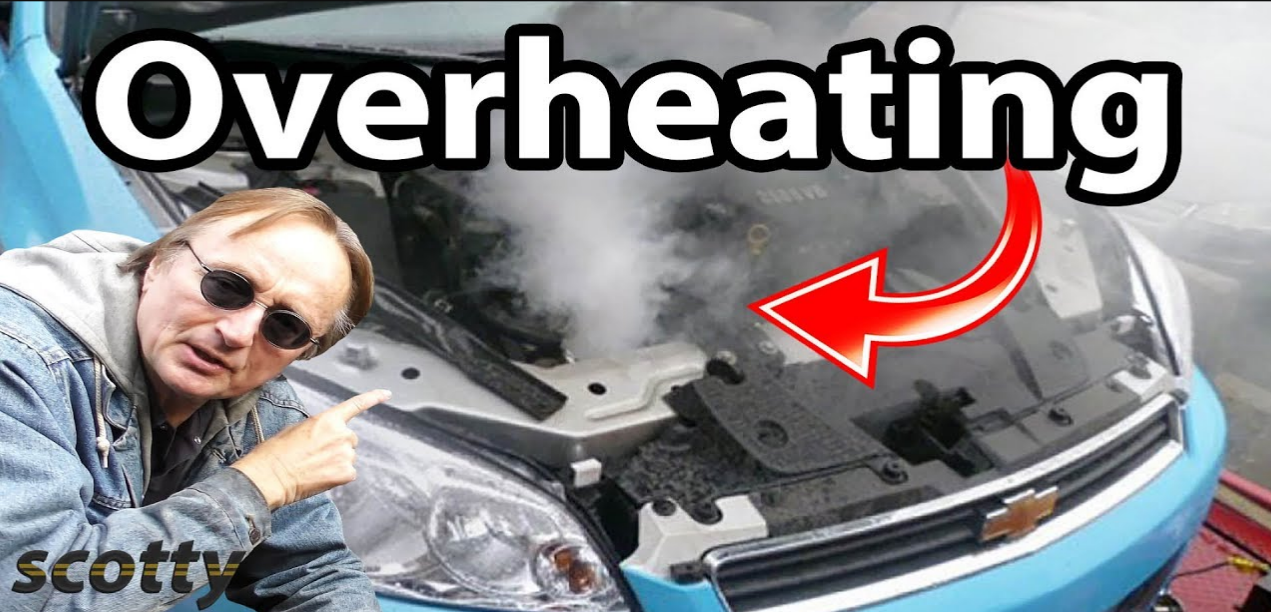
Radiator issues
The radiator plays a crucial role in cooling down the engine. It dissipates the heat absorbed by the coolant from the engine. However, if the radiator becomes clogged or damaged, it won’t be able to perform its function efficiently.
- Clogging: Dirt, debris, and sediments can accumulate in the radiator over time, blocking the flow of coolant. A clogged radiator can cost anywhere between $100 to $600 to get cleaned or flushed.
- Leaks: Any leakage in the radiator can result in an insufficient amount of coolant, leading to overheating. Fixing a leak might set you back by $50 to $200, depending on the severity and location of the leak.
Water pump malfunctions
The water pump is responsible for circulating the coolant throughout the engine and back to the radiator. If it malfunctions, the coolant won’t circulate, causing the engine to overheat.
- Impeller Wear: The impeller in the water pump can wear out, reducing its effectiveness. A new water pump can cost between $300 to $750, including labor.
- Seal Failures: Seal failures can lead to coolant leaks. This not only leads to overheating but also compromises the pump’s efficiency.
Coolant leaks
The coolant absorbs heat from the engine and carries it to the radiator. A coolant leak can reduce the amount of coolant available, causing the engine to overheat. Leaks can occur in various parts of the car, such as the radiator, water pump, or hoses. Fixing a coolant leak can range from $100 to $500, depending on the source of the leak.
Thermostat failures
A thermostat regulates the flow of coolant based on the engine’s temperature. A faulty thermostat might not open when needed, preventing the coolant from reaching the engine. Replacing a faulty thermostat typically costs between $150 to $350, including labor.
Blocked hoses or passages
Coolant hoses transport the coolant between the engine, radiator, and the heater. If they get blocked or pinched, they can prevent the proper flow of coolant. Clearing blockages or replacing hoses can cost anywhere from $50 to $300, depending on the complexity of the job.
Engine oil issues
Engine oil lubricates the engine parts, reducing friction and, consequently, heat. Low oil levels or using the wrong type of oil can lead to increased friction and overheating. Regular oil changes, which cost around $30 to $70, are essential to maintain the engine’s health and prevent overheating.
In summary, several factors can cause a car to overheat. Regular maintenance and timely checks can help in identifying and addressing these issues, ensuring the vehicle’s optimal performance and longevity.
Symptoms of an Overheating Car
Recognizing the signs of an overheating car can be a lifesaver, both for the vehicle and the occupants. Identifying these symptoms early can prevent potential damage and hefty repair costs. Let’s dive into some of the most apparent signs that indicate your car might be overheating.
High temperature gauge readings
One of the first and most evident signs of an overheating car is the temperature gauge on your dashboard climbing into the red zone. Typically, the gauge should be at the midpoint. If it starts moving towards the hot end, it’s a clear indication that the engine’s temperature is rising beyond the safe limit. While occasional spikes can occur, especially during hot weather or when climbing steep terrains, a consistently high reading can be worrisome. Addressing the root cause can range from a simple coolant top-up costing around $20 to more complex repairs costing hundreds or even thousands of dollars.
Steam or smoke from under the hood
Seeing steam or smoke emanating from under the hood is a surefire sign that your car is overheating. This usually happens when the coolant gets so hot that it starts to steam. If the smoke is white, it’s typically steam from the boiling coolant. However, if it’s blue or black, it might indicate burning oil, which is another serious concern. Acting immediately by pulling over and shutting off the engine is crucial. Towing fees can range from $75 to $125, and the repair costs can vary depending on the severity of the issue.
Coolant boiling or spewing from the radiator
If you hear a bubbling noise or see coolant spewing from the radiator or the coolant reservoir, it’s boiling due to excessive heat. This symptom is often accompanied by steam from under the hood. The boiling point of standard coolant is around 226°F (108°C), but this can be higher if the coolant is pressurized or contains anti-boil additives. Replacing the coolant or fixing the underlying issue can cost anywhere from $50 to $200.

Engine performance issues
Overheating can adversely impact the engine’s performance. You might experience a loss of power, stalling, or rough idling. The engine might also struggle to accelerate or maintain speed. These performance issues can be due to the engine’s protective mechanisms kicking in to prevent damage. Ignoring these symptoms can lead to more severe problems down the line, potentially costing thousands in repairs.
In conclusion, while cars are designed to operate efficiently within a range of temperatures, external and internal factors can lead to overheating. Being vigilant and recognizing the symptoms early can save you time, money, and potential safety hazards.
Immediate Actions to Take When Your Car Overheats
When your car starts to overheat, swift and appropriate action can make the difference between a minor inconvenience and a catastrophic engine failure. Recognizing the signs of overheating is just the first step. Knowing what to do next is crucial. Here are some immediate actions you should consider if you suspect your car is overheating.
Turning off the air conditioning
The air conditioning system puts an additional load on the engine, producing more heat. By turning off the air conditioning, you can reduce the engine’s workload, thus helping to lower its temperature. The energy required to run the AC compressor can range from 5 to 10 horsepower, which is a significant draw on the engine. By shutting it off, you can potentially prevent the temperature from rising further.
Shifting to neutral or park and revving the engine
By shifting into neutral or park and lightly revving the engine, you can promote increased coolant flow and fan speed, which can help dissipate heat faster. It’s essential, however, to ensure you’re in a safe location, like at a traffic light or a standstill in traffic, before doing this. Lightly revving to about 2,000 RPM for a few seconds can increase the water pump’s and fan’s speed, aiding in faster cooling. However, avoid aggressive revving as it can exacerbate the problem.
Turning on the heater
While it might sound counterintuitive, especially on a hot day, turning on the heater can help draw heat away from the engine and into the car’s cabin. The heater core acts as a secondary radiator, removing heat from the engine coolant. While this can provide temporary relief to the engine, it might make the car’s interior uncomfortable. It’s a short-term solution, and you should still seek a safe spot to pull over.
Pulling over and shutting off the engine
If the above measures don’t bring down the temperature, it’s essential to find a safe place to pull over and shut off the engine. Continuing to drive an overheating car can cause severe, often irreparable, damage to the engine. After pulling over, open the hood (but be cautious of steam) to allow heat to escape more rapidly. It’s recommended to wait at least 30 minutes for the engine to cool down before checking or adding any coolant. If you’re unsure about the problem’s severity, consider calling for assistance. Towing the car to a nearby mechanic might cost between $75 to $125, but it’s a small price to pay compared to potential engine replacement costs, which can range from $2,000 to $10,000 or more.
In essence, while no one wants to face an overheating car, knowing the immediate actions to take can prevent further damage, protect your investment, and ensure your safety. Always prioritize safety and avoid measures that might put you or other road users at risk.
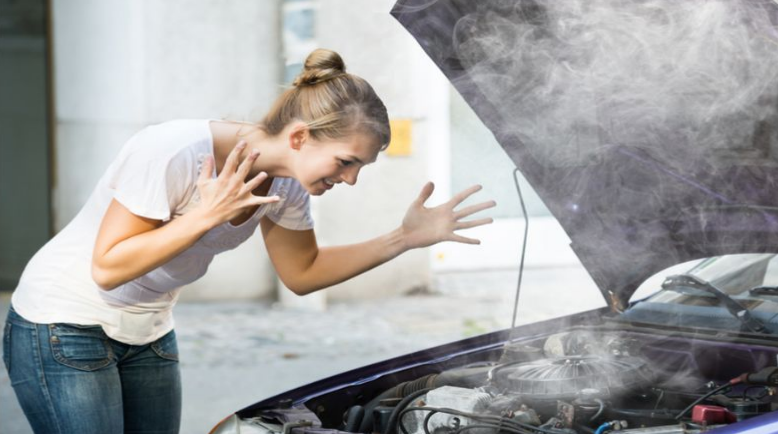
Preventative Measures to Avoid Overheating
While dealing with an overheating car is essential, preventing the situation in the first place is even more crucial. Proper maintenance and care can drastically reduce the chances of your car overheating. Here are some proactive steps every car owner should consider to ensure their vehicle remains cool and functions efficiently.
Regular maintenance checks
Routine maintenance checks are the backbone of a healthy car. Regularly servicing your car ensures that all components are in good shape and any potential issues are addressed before they escalate.
- Oil Change: Regular oil changes, typically every 3,000 to 5,000 miles, ensure that the engine is well-lubricated, reducing friction and heat. The average cost for an oil change can range from $30 to $70.
- Coolant Flush: Over time, the coolant can degrade or get contaminated. A coolant flush, recommended every 30,000 to 50,000 miles, ensures the cooling system remains effective. This service usually costs between $100 to $150.
Monitoring coolant levels
The coolant is a car’s primary defense against overheating. Regularly checking the coolant reservoir and ensuring it’s at the recommended level is essential.
- Frequency: It’s advisable to check the coolant level every month. If you’re consistently losing coolant, there might be a leak.
- Top-Ups: If the level is low, top it up with a mix of water and antifreeze. Always refer to the vehicle’s manual for the recommended ratio, which is often around 50:50. A gallon of coolant can cost between $10 to $20.
Checking for leaks
Leaks in the cooling system can lead to reduced coolant levels, resulting in overheating. Regularly inspecting the system can help identify any leaks early.
- Visual Inspection: Look for wet spots or drips under the car, especially after it’s been parked for a while.
- Pressure Test: If you suspect a leak but can’t locate it, a pressure test can help. Most mechanics can perform this test, which typically costs between $40 to $60.
Cleaning the radiator and cooling system
Over time, the radiator and the cooling system can accumulate debris and sediments, reducing their efficiency.
- Radiator Flush: A radiator flush can help remove any buildup. It’s advisable to do this every 30,000 miles or as recommended in your car’s manual. The cost for this service can range from $50 to $150.
- External Cleaning: The front of the radiator can collect bugs, leaves, and other debris, especially if you drive in dusty conditions. Periodically cleaning the radiator’s exterior can improve airflow and cooling efficiency.
In summary, the key to preventing your car from overheating lies in regular maintenance and vigilance. Investing time and a little money in these preventative measures can save you from more significant issues, costs, and potential dangers down the road.
Professional Diagnosis and Repairs
Cars are intricate machines, and while there are certain issues you can address on your own, many require the expertise of professionals. Especially when it comes to overheating, which can be indicative of a myriad of underlying problems, seeking professional help is not just advisable, but often essential. Let’s explore the importance of expert intervention and some common repair solutions they might offer.
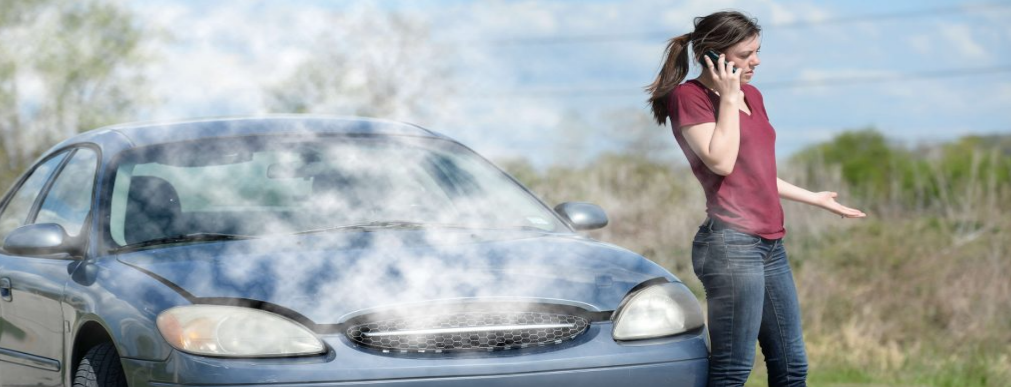
Importance of seeking expert help
Turning to professionals for a diagnosis and repair offers several advantages:
- Accurate Diagnosis: Mechanics have the tools and experience to pinpoint the exact cause of overheating. Whether it’s using a code reader to identify engine faults or conducting a pressure test to find leaks, their methods are precise.
- Efficient Repairs: A professional can often address the issue faster and more effectively than an amateur. The cost of labor at a typical mechanic shop can range from $50 to $150 per hour, depending on the location and the nature of the repair.
- Safety: Incorrectly diagnosing or repairing an issue can lead to further damage or even pose safety risks. Professionals ensure repairs adhere to safety standards and best practices.
- Warranty: Many repair shops offer warranties on their work. This means if the issue recurs or if there’s a related problem, subsequent repairs might be covered at no additional cost.
Common repair solutions
When it comes to overheating, there are several common repair solutions that professionals might recommend:
- Coolant Replacement: Old or contaminated coolant can be less effective. A complete flush and replacement can cost between $100 to $150.
- Thermostat Replacement: A malfunctioning thermostat can impede coolant flow. Replacing it typically costs between $150 to $350, including parts and labor.
- Radiator Repair or Replacement: If the radiator is clogged or damaged, it might need to be repaired or replaced. This can range from $300 to $800, depending on the make and model of your car.
- Water Pump Replacement: A defective water pump can prevent coolant circulation. Replacing it can set you back anywhere from $300 to $750, inclusive of labor.
- Seal and Gasket Repairs: Leaks in the cooling system often originate from worn-out seals or gaskets. Depending on the leak’s location, repairs can cost between $200 to $1,200.
In conclusion, while the initial cost of seeking professional diagnosis and repair might seem high, it’s a worthy investment. Expert intervention ensures that the root cause of the overheating is identified and addressed, saving you from potential larger expenses and safety hazards in the long run.
Conclusion
Addressing the issue of a car overheating is more than just a mechanical concern; it’s about ensuring the safety, longevity, and performance of your vehicle. As we wrap up our discussion on the topic, let’s revisit the main points and understand the critical nature of promptly addressing overheating issues.
Recap of main points
- Understanding Overheating: At its core, overheating occurs when the engine’s temperature surpasses its normal operational range, often due to issues within the cooling system.
- Symptoms: Recognizable symptoms include high gauge readings, steam from under the hood, boiling coolant, and deteriorating engine performance.
- Causes: Overheating can arise from various causes, such as radiator issues, water pump malfunctions, coolant leaks, and more.
- Immediate Actions: If your car shows signs of overheating, actions like turning off the air conditioning, revving in neutral, using the heater, and ultimately pulling over can mitigate damage.
- Prevention: Regular maintenance, monitoring coolant levels, checking for leaks, and cleaning the cooling system are all preventative measures to avoid overheating.
- Professional Help: Seeking expert help ensures accurate diagnosis and efficient repairs, often backed by warranties.
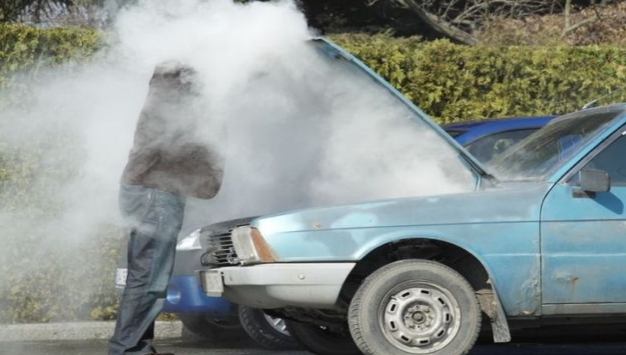
Importance of addressing overheating promptly
Delaying or ignoring signs of overheating can be detrimental. Here’s why timely action is crucial:
- Preventing Engine Damage: Prolonged overheating can lead to irreversible engine damage. Components like the cylinder head or gasket can warp or crack, with repair costs ranging from $500 to $3,000 or more.
- Safety: Overheating can pose severe safety risks, from fires to impaired driving due to steam or smoke.
- Cost-Efficiency: Addressing issues early can save on hefty repair costs in the future. For instance, a simple coolant top-up, costing around $20, can prevent damages that might otherwise cost thousands to repair.
- Vehicle Longevity: Timely interventions ensure that the vehicle’s lifespan isn’t compromised. Regular overheating episodes can reduce an engine’s lifespan by tens of thousands of miles.
In essence, understanding and addressing car overheating is paramount for every driver. Not only does it protect your investment, but it also safeguards against potential hazards. Always prioritize safety and take timely action when signs of overheating appear.
